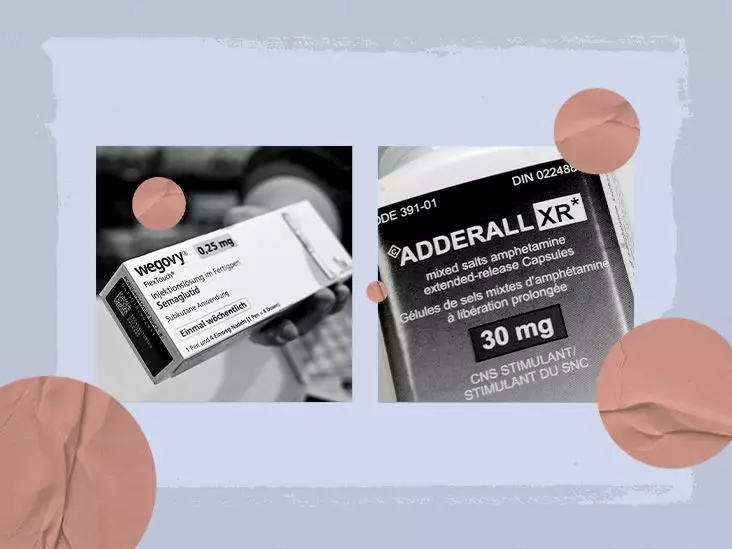The emergence of new medications constantly reshapes the landscape of treatment protocols, particularly for conditions such as obesity and Attention Deficit Hyperactivity Disorder (ADHD). Wegovy, a recently approved glucagon-like peptide-1 (GLP-1) receptor agonist, is primarily utilized for weight management. In contrast, Adderall is a widely prescribed stimulant for managing ADHD symptoms. With the frequent overlap of these treatment modalities, it becomes critical to examine their interaction and the implications of concurrent use.
Wegovy, generically known as semaglutide, functions by mimicking the GLP-1 hormone which regulates appetite and insulin levels. It aims to induce weight loss by slowing gastric emptying and promoting a feeling of fullness. Adderall contains a combination of amphetamine salts that act on neurotransmitters in the brain to improve focus and reduce impulsivity in individuals with ADHD. Given their functions, the combination of such medications may yield questions regarding possible interactions or cumulative side effects.
Current medical literature does not reveal any direct interactions between Wegovy and Adderall. This suggests that, under normal circumstances, patients may not need to be overly concerned about taking these two medications together. However, an interaction in medical terminology reflects an altered or unexpected effect caused by the simultaneous presence of two substances. While Wegovy is not documented to alter the efficacy of Adderall, the pace at which food moves through the gastrointestinal tract could theoretically alter how effectively Adderall is absorbed by the body.
One point of concern when combining these medications lies in their common side effects, such as appetite reduction. As Wegovy is engineered to decrease appetite significantly, patients already taking Adderall might find the dual effect problematic. An excessive reduction in food intake can lead to nutrient deficiency or rapid weight loss, which might further complicate the patient’s overall health picture.
Though no clinical trials have definitively investigated the combination of Adderall and Wegovy directly, monitoring is recommended. Important to note is that while semaglutide did not show any negative effect on the absorption of medications studied in relevant trials, Adderall was not one of the medications evaluated. Therefore, individuals on this combination must remain vigilant regarding how they feel and the effectiveness of their ADHD treatment. Should patients notice fluctuations in symptom management or experience increased side effects, they should consult their healthcare provider promptly.
With Wegovy’s mechanism of action potentially slowing gastric emptying, it stands to reason that users of both medications could experience variations in the intensity of effects. This warrants personal monitoring and, ideally, regular check-ups to ensure that therapeutic goals are still being met.
To foster safety when using Wegovy alongside Adderall, it is vital for patients to communicate openly with healthcare practitioners about all medications and supplements they are taking. This should include over-the-counter products, vitamins, and herbal supplements. A comprehensive understanding of the patient’s medication landscape is essential for reducing risks associated with interactions.
Moreover, the emphasis should be placed on maintaining nutritional status. If appetite suppression results in inadequate nutrient intake, a consultation with a dietitian may help. Proper nutritional support can prevent complications such as gallstones that may arise from rapid weight loss, a potential risk when using Wegovy.
While Wegovy and Adderall do not seem to interact directly based on existing evidence, caution is warranted with their concurrent use due to similar side effects and the potential for altered drug absorption. Keeping healthcare providers informed about all medications is key to ensuring effective and safe management of both weight loss and ADHD symptoms. Responsible monitoring and nutritional considerations should be prioritized to ameliorate any adverse effects that might arise from using these medications in tandem. Staying informed and healthy can empower patients to navigate their treatment plans safely and effectively.

